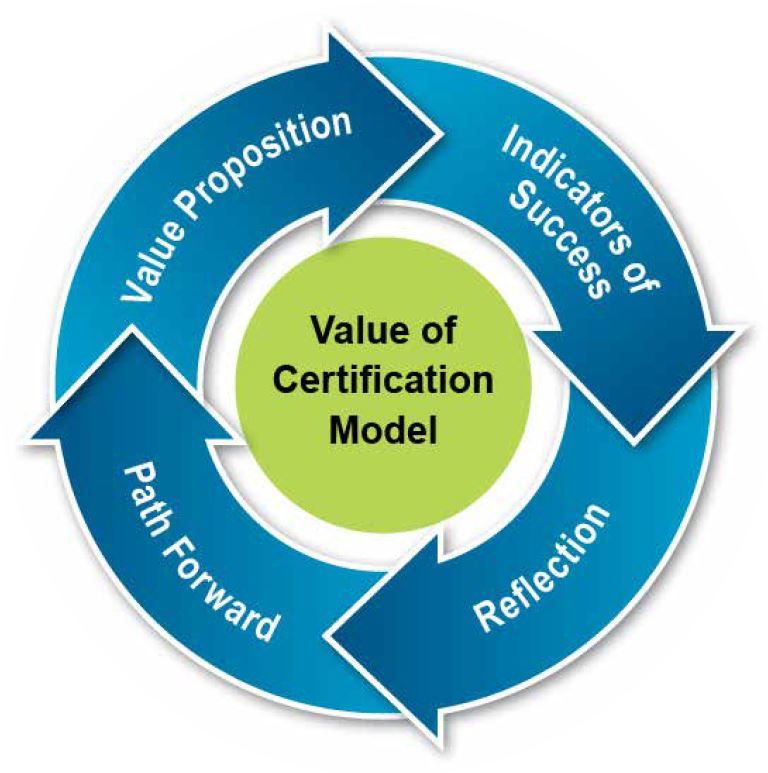
Professional certifications are an indispensable way to highlight the knowledge and skills demanded by today’s competitive employment arena.
Even so, the time, effort, and cost needed to prepare for and earn a credential is substantial—and it is no surprise that potential certificants often begin by asking “What impact will this credential have on my career?”
What is surprising is that certifying bodies often don’t have a good answer. Gone are the days when people pursued credentials simply for their own personal enrichment. Now, they want to see clear evidence that the credential helps them get a better job, make more money, or earn a promotion, and credentialing
organizations must be prepared to provide it.

Conducting a truly informative impact evaluation study demands an unbiased perspective, deep methodological and statistical expertise, and a clear understanding of a client’s unique context and goals for the program. As an independent nonprofit organization, we have a long history of providing trusted, unbiased research and evaluation services. Our Value of Certification (VoC) studies begin by working with clients to clarify their program’s value proposition—the credential’s desired impact—and then identify the data sources and analytic strategies needed to directly test it.
Our approach, which recently helped examine the impact of the Certified Emergency Nurse (CEN®) credential, includes:
Assessing Value
From the perspective of stakeholders, including both certificants and non-certificants as well as their supervisors.
Measuring a Rich Array of Potential Outcomes
Including job performance, career potential, technical expertise, career satisfaction and growth, compensation, commitment, and engagement.
Using Rigorous Methodological Strategies
To rule out “rival hypotheses,” making the VoC study’s findings as informative as possible.
Helping Clients Communicate the Study Results
In a clear and compelling way to stakeholders, and to use them to identify ways the program can be improved.
Our VoC studies have illuminated the impressive impact of several well-known credentials. In a study we conducted for the HR Certification Institute (HRCI), holders of the PHR® and SPHR® credentials tended to have higher levels of job performance, career satisfaction, and compensation than individuals with similar education levels and work histories who were not certified. Results like these can drive an effective marketing strategy, highlight what’s working about a program as well as what’s not, and keep certificants engaged and motivated to re-certify.
The dream that “If you build it, they will come” may work in the movies, but simply building a high-quality certification program is no guarantee of success—potential certificants must see evidence that holding the credential will open the door to increased employability, compensation, and career growth.

